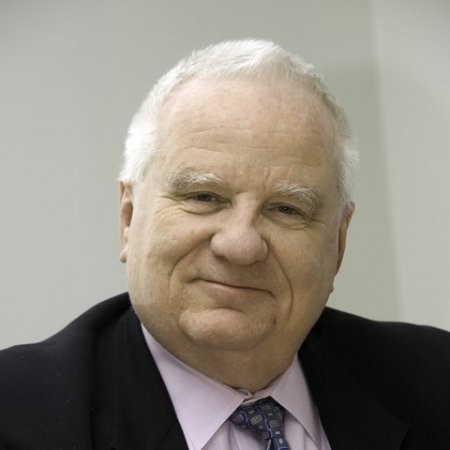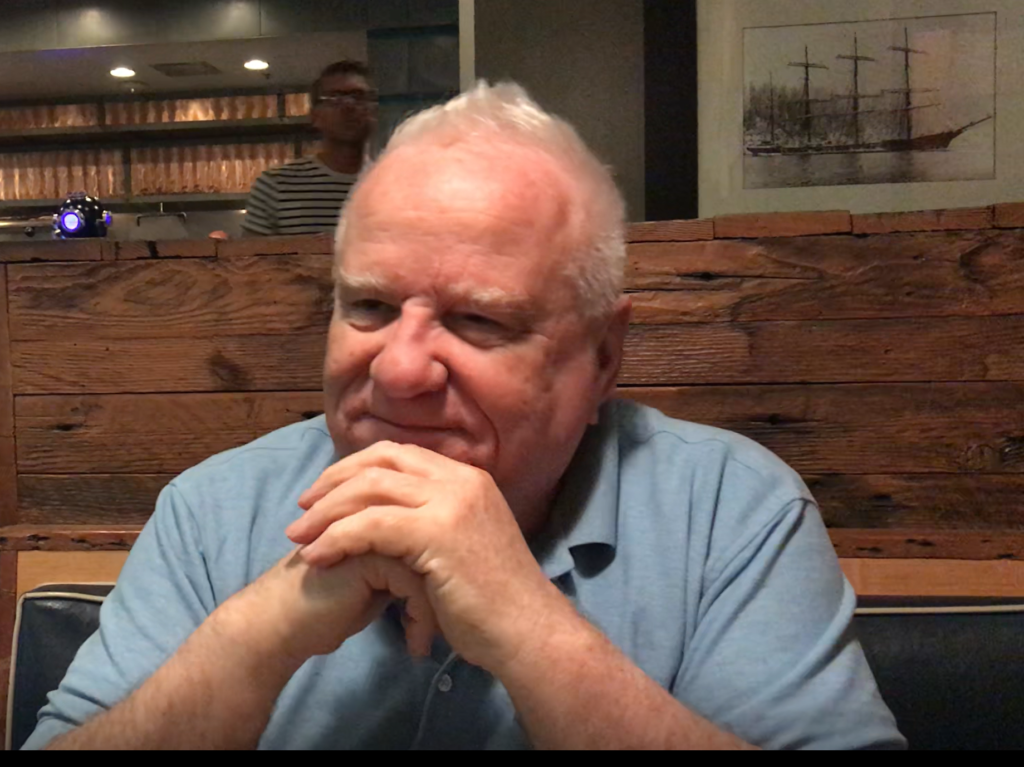 Dr. John Francis Mahon (age 73), loving husband of Julia Mahon for 52 years, beloved father of Elizabeth (Beth) and grandfather of Alannah, died at home in Kingfield Maine on 20th October 2021 after a long battle with cancer. Born in West Philadelphia, Pennsylvania, John relished working hard, independent thinking, traveling the world, and asking provocative questions – in a clear, articulate, booming voice for all to hear. A University of Maine Distinguished (emeritus) professor and recognized global expert in political strategy, issues management, and corporate social responsibility, John focused his considerable passion and intellect on the wicked challenges facing businesses and communities. As a co-founder of the International Association for Business and Society (IABS) and a former editor of Business & Society, John championed evidence-based research examining how businesses, politics, and corporate responsibilities have evolved, thereby helping to create a foundation upon which scholars today examine integrative ESG, social impact, and social enterprise strategies, among other topics.
Dr. John Francis Mahon (age 73), loving husband of Julia Mahon for 52 years, beloved father of Elizabeth (Beth) and grandfather of Alannah, died at home in Kingfield Maine on 20th October 2021 after a long battle with cancer. Born in West Philadelphia, Pennsylvania, John relished working hard, independent thinking, traveling the world, and asking provocative questions – in a clear, articulate, booming voice for all to hear. A University of Maine Distinguished (emeritus) professor and recognized global expert in political strategy, issues management, and corporate social responsibility, John focused his considerable passion and intellect on the wicked challenges facing businesses and communities. As a co-founder of the International Association for Business and Society (IABS) and a former editor of Business & Society, John championed evidence-based research examining how businesses, politics, and corporate responsibilities have evolved, thereby helping to create a foundation upon which scholars today examine integrative ESG, social impact, and social enterprise strategies, among other topics.
Trained in labor-management relations and political science with a B.S. from the University of Pennsylvania’s Wharton School of Finance and Commerce and an M.B.A. with Honors from Bryant College Graduate School of Management, John earned a Doctor of Business Administration from Boston University (1982) in strategy, public policy, and organizational behavior. John also received an honorary Doctor of Business Administration from the University of Chester (UK) and held the first John M. Murphy Endowed Chair of International Business, Policy and Strategy at the University of Maine. Nearly two decades ago, he was honored with the Sumner Marcus lifetime achievement award in 2003, the highest honor from the Academy of Management Social Issues in Management (SIM) Division.
Throughout his 43-year academic career at Maine and Boston University, John won numerous awards for his influential scholarship, teaching, and leadership. His dissertation, focused on corporate public affairs and business engagement in society, won the Academy of Management’s Best Dissertation Award in both the Strategy Division and the Social Issues in Management (SIM) Division—the first, and last, dissertation to do so since the rules were changed after his double awards.
Publishing in top-tier academic outlets Strategic Management Journal, Academy of Management Review, Long Range Planning, and Business & Society, John also wrote widely in diverse areas such as: Business in the Contemporary World, Journal of Public Affairs, Annals of Surgical Oncology, Journal of Surgical Research, Maine Weekend – the weekend edition of the Bangor Daily News, among many others. A prolific writer he was the author or co-author of more than 150 published articles with many republished as ‘classics’, more than 60 business cases, and numerous books.
With long-time collaborator Fr. Rich McGowan, S.J., he won awards when examining corporate social responsibility (CSR) within the gambling and tobacco ‘sin’ industries as well as CSR in the NBA, NFL, and MLB. Another paper with good friend Steve Wartick on “Corporate Social Performance Profiling” won the IABS Best Paper Award. His highest cited paper, of his more than 8100 lifetime citations, was our co-authored piece which received the IABS 20th Anniversary Award in 2009 as the “Best Paper in 20 Years in Business & Society”, that examined twenty-five years of incomparable results regarding the corporate social and financial performance relationship.
Able to effectively bridge theory and practice, John was a powerful advocate for executives to actively shape and solve the issues of the day. Recognized with the General Electric Corp. Award for leadership in management curriculum reform, teaching excellence, and the first-ever Chase Award given to an academic from the Issues Management Council, he made significant contributions in classrooms around the world and had an enduring impact on thousands. John took a special interest in leading students on study abroad courses to South Africa, Russia, England, and numerous places in the European Union.
An inquisitive scholar-educator John was also the 2011 recipient of the University of Maine Presidential Research and Creative Achievement Award, a finalist for the 2014 Aspen National “Faculty Pioneer Award” for his course on climate change and was named the 2017 Distinguished Maine Professor—the university’s highest faculty honor reserved for those exemplifying the highest qualities of teaching, research, and public service.
 John was a fierce advocate and speaker of truth. A caring, supportive mentor and generous friend, John nurtured in his students, friends, and family a love of reading, writing, thinking, and service with an adventurous, optimistic spirit. While a gifted scholar-educator, John sadly never reached acclaim as a singer as many of us who heard him not-so-subtly singing off key and out of tune can attest. An inveterate traveler – not a tourist! – John loved burnt bacon and his Maine ‘compound’ with its groves of pine trees and low-bush blueberries.
John was a fierce advocate and speaker of truth. A caring, supportive mentor and generous friend, John nurtured in his students, friends, and family a love of reading, writing, thinking, and service with an adventurous, optimistic spirit. While a gifted scholar-educator, John sadly never reached acclaim as a singer as many of us who heard him not-so-subtly singing off key and out of tune can attest. An inveterate traveler – not a tourist! – John loved burnt bacon and his Maine ‘compound’ with its groves of pine trees and low-bush blueberries.
His friends and family looked forward to hearing his big booming voice – holding court and regularly proclaiming, ‘every day a holiday; every meal a banquet’.
Rest in peace, John, until we meet again. We miss you.
See also a more elaborate obituary published in the Journal of Public Affairs.
Editors’ note: The following research papers of John are available open-access until mid March.
- Mahon, J. F., & Waddock, S. A. 1992. Strategic Issues Management: An Integration of Issue Life Cycle Perspectives. Business & Society, 31(1): 19–32.
- Griffin, J. J., & Mahon, J. F. 1997. The Corporate Social Performance and Corporate Financial Performance Debate: Twenty-Five Years of Incomparable Research. Business & Society, 36(1): 5–31.
- Mahon, J.F. 2002. Corporate Reputation: Research Agenda Using Strategy and Stakeholder Literature. Business & Society, 41(4):415-445.

One Response
I met John some 10 years ago as a fellow coach at the John Molson MBA International Case Competition of Concordia University, Montréal. As a young scholar and young coach, I very much looked up to him and enjoyed every minute of talking to him. RIP.